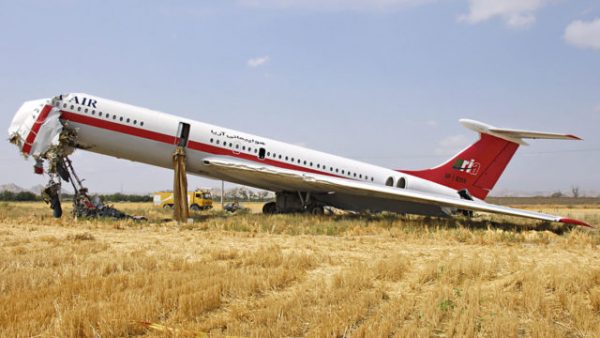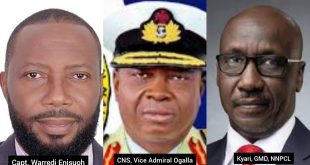
By Okuneye Moyosola
Aviation is one the main drivers behind globalization. It supports 63 million jobs worldwide and enables $2.7trillion in global Gross Domestic Product (GDP). However, despite the huge business potentials in the industry, aviation business remains very risky and prone to great losses. Therefore, to realize the business potentials in the industry, operators must mitigate the huge risk involved in the business. Hence, the growing need for aviation insurance.
Aviation insurance comprises three major aspects such as aircraft insurance, third party liability insurance and passenger liability insurance. Also, as insurance keeps businesses afloat, aviation insurance ensures the sustainability of air carriage in the country which in turn contributes to the Nigerian economy. While aircraft insurance provides cover against technical damage to the plane, the third party liability provides cover for damages the plane might cause to other people‘s goods as a result of its flight such as, damage to a hanger, crashes or other things.
Despite the importance of aviation insurance, in Nigeria underwriters shy away from the business as a result of several factors such as low financial and human capacity, huge risk exposure and dearth of local airlines. Most Nigerian airlines to insure abroad and Nigeria suffers gross capital flight as it is unable to retain more of the total premium in the aviation industry, this has led to stagnation of the aviation insurance industry.
Investigations also revealed that the eight indigenous airlines in Nigeria, expend about N11bn on aircraft and passengers’ insurance premiums annually, representing eight per cent of total value of each aircraft in their fleet. On the contrary, their counterparts in Europe and America, expend a mere one per cent of aircraft cost as insurance premiums for airplanes and passengers.

For insurance premiums on aircraft, it was gathered that the airlines spend N5.5billion as insurance premiums while another N5.5billion is expended as insurance cover for their passengers annually in case of an accident.
The investigation also revealed that 70 percent of insurance premiums are carried out abroad with international insurance companies like Lloyds of London while the other 30 percent is domiciled in Nigeria with local insurance firms who act as brokerage firms.
Over the years, foreign insurance and reinsurance firms such as Lloyd’s and the American International Group (AIG) have continued to be the major players in the insurance of aircrafts in Nigeria. It is one of the major areas of capital flight in the country which is as a result of the low level of involvement of local underwriters in the business.
An average commercial airline cost about $270.9 million and an average compensation per passenger is about $100,000. Multiplying these figures by 200 passengers (for an aircraft carrying 200 passengers apart from the crew members) and the damages that may arise if there is an accident, is a lot of risk. Aviation insurance requires large capital; even if all the insurance companies in Nigeria pool resources together, they may not have enough to bear the risk of the local aviation industry.
Speaking to MMS Plus newspaper, the Head of Special Risk, FBN Insurance Company, Mr. Davis Omenogor lamented that insurance companies in Nigeria do not have the capacity to take carry the aviation risk.
“Insurance players in the general line of business have what is called a treaty. It is that treaty that they will take out to another insurance company that may likely be outside Nigeria or between Nigeria. Those companies are referred to as the re-insurance companies. They are not usually involved in everyday motor, fire and burglary or aviation insurance.
“They act like the Central Bank of Nigeria. What they usually do is that they have a pool set aside to cater for various risk coming from different companies. So those insurance companies in Nigeria would go and buy facilities from these Re-insurance companies. This is called treaty. It is this treaty that will carry the kind of transaction that each insurance company wants to be doing. The treaty will give them the financial muscle to participate in the risk”.
“Aviation insurance underwriting in Nigeria is scarce because the number of insurance companies that have the treaty capacity to write the insurance are very limited. Also, the expertise underwriting aviation in Nigeria is very remote. Most of the policies go offshore which means that they have to pass the risk to their re-insurance companies. If a particular insurance company wants to participate aviation policy here in Nigeria, they send almost 90-95% of the risk to re-insurance company to that re-insurance company that gave them the treaty so that when any loss occur, it would not eat deep into their profit margin or operational premium volume set aside for management of planes. So why most of the insurance companies do not participate is simply because of treaty capacity”.
“Insurance company needs to have a treaty capacity re-insurance company so that by the time they take aviation insurance from anybody that wants to underwrite, they will write it to the tune of their capacity. When it is excess, you have to push it to the re-insurance companies to hold on to. Many airlines involved in commercial operations do not have as much as 20% of their insurances done here. Although it could be handled by an insurance company here, about 80% is sent abroad for re-insurance. The capacity for aviation is not strong in the country” he said.
Also speaking, a Transport expert, Dr. Sunny Maduka stressed the need for the government to recapitalize insurance companies in order to boost their capital base.
“Presently, the government is trying to review the insurance capital base. It is the capital base that matters. The best thing that the government can do is to recapitalize the insurance companies o that they can have the capital base to fully insure the risk involved in the aviation sector. Even in the maritime sector, most of the things there are insured in collaboration with specialist from outside the country. It is the capital base that matters. Most of these insurance like aviation are capital intensive and are dollar domiciled”, he opined.
Meanwhile, a Senior Manager at IGL insurance company, Mrs. Florence Oladimeji while speaking with MMS Plus newspaper noted that the National Insurance Commission (NAICOM) issued a directive which states that all aircrafts in Nigeria must be insured in Nigeria.
“NAICOM has issued a directive that any aircraft that must be insured must be done in Nigeria and all insurance companies were advised to participate in the insurance. It is only when the capacity is more than what the insurance companies are able to cover that NAICOM will now make arrangements for it to be done abroad. However, it is no longer automatic that it should be done abroad” she said.
“You have to involve all the insurance companies in Nigeria first and for those that did not want to participate, you have to show the rejection letter from that company when you are sending your report to NAICOM. It is only when the capacity is filled and there is still a larger part left that it is now taken abroad”.
Recall that after the tragic Dana Airline crash in June 2012, which claimed the lives of 153 people, Prestige Assurance paid $350million for the passengers, property and aircraft.
Prestige Assurance is an Indian company which has a branch office in Nigeria, it currently operates as a subsidiary Company of The New India Assurance Company Ltd, Mumbai with 69.5% of the shareholding. It is also the largest general insurer in Afro-Asian region with presence in over 28 countries.
This shows the inability of local insurance companies to take more aviation risks is the reason why airlines insure their aircraft abroad. It is unfortunate that foreign insurance and reinsurance firms will continue to be the major players in the insurance of aircraft in Nigeria until local insurance companies improve their capacity. Will they ever be able to achieve this, when the requisite funds keeps going abroad?
 MMS PLUS NG – Maritime, Aviation, Business, Oil and Gas News Online Newspaper with coverage in Maritime, Oil and Gas, Aviation, Power and Energy as well as Financial News
MMS PLUS NG – Maritime, Aviation, Business, Oil and Gas News Online Newspaper with coverage in Maritime, Oil and Gas, Aviation, Power and Energy as well as Financial News









